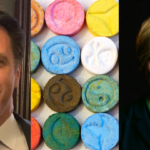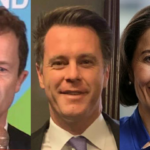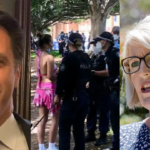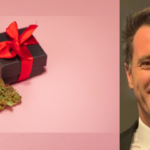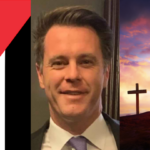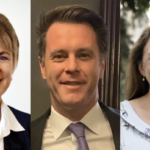A Year in It’s Certain, Chris Minns Is a Liberal Premier Dressed in Labor Trappings
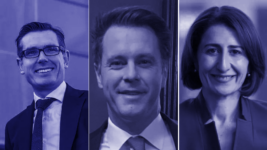
The last NSW election, as usual, had Labor and the Liberals pitted against each other for governance. But the difference in the pre-election campaign, it was often remarked, was the seeming interchangeability between the leaders of each major both in appearance and political outlook.
Commentators observed in regard to photos of the candidates standing side-by-side prior to the 23 March ballot, that the relatively young major party leaders cut a similar figure, and this then often triggered reflection on the fact that both men of faith appeared to share similar political proclivities.
Indeed, on last year’s state vote, PM Anthony Albanese had already unveiled the AUKUS optimal pathway in San Diego, and it was then apparent that the Liberal-leader-in-Labor-clothing equation was being played out federally.
But this was no algorithm, so Labor mimicking the Liberals in this state was not a given.
A year in, however, and it’s clear NSW premier Chris Minns is a leader with the same antiquated and conservative social outlook. as his immediate Liberal predecessor Dominic Perrottet, and he’d also make a comfortable bedfellow to ex-premiers Gladys Berejikilian, Mike Baird and Barry O’Farrell.
Traditionally, Labor had prioritised progressive social policies. Yet, it now appears both major parties are focused on the same agenda, regardless of election promises on progressing reform, and Minns and NSW Labor are now treading the same well-worn path created by Liberal Party soles.
Widening the gap
The freshest example of new Labor policy revealing that voters, who were concerned that a non-Coalition government would spell opening the floodgates to social equity, needn’t have worried as last week’s state government released tough-on-youth-crime package reveals.
This throwback to the colonising handbook came out of nowhere. Indeed, the BOCSAR figures alerting NSW to a previously unheard of “regional youth crime wave”, which the laws are predicated upon, were released the day after Minns told the constituency he’s cracking down on kids.
And while the new package does allocate more funding to social programs to assist youth, the accompanying legislation provides a law to ensure more juveniles who offend on bail are then denied it, and it creates a new offence to imprison youths longer if they boast of their crimes online.
The more subtle implications not necessarily apparent in the glossy delivery of the crackdown on youth crime are that it will serve to ensure more First Nations children are locked up, as will be the outcomes of Minn’s decision not to raise the age of criminal responsibility from just 10 years old.
Antisemitic-scare gag
The local alternative media has been discussing, as have global nonmainstream commentators, that the current reporting environment in the mainstream press requires reportage on the wholesale massacre in Gaza to be conveyed through an Israeli lens, with Palestinian voices supressed.
This bias in mainstream reporting has also been reflected in major party politicking in Australia, and Minns has been a chief proponent of this outlook that, since October, has been framing pro-Palestinian support as antisemitic and likely criminal, which is too propagated in the Murdoch press.
Both antisemitic and Islamophobic incidents have increased. Yet, criminal incidents clearly framed against pro-Palestinian voices are being downplayed, whilst those labelled as antisemitic offences, that too breach the criminal threshold, have been not only highlighted but manufactured as well.
And in the face of circulating doctored footage falsely conveying a serious antisemitic slur expressed vocally and publicly before the Opera House, NSW Labor toughened NSW hate speech laws, as an apparent salve to prevent expressions of pro-Palestinian sentiment, in line with the Zionist agenda.
The ever-thickening thin blue line
The Mardi Gras Board last month asked NSW police not to march in this month’s parade because an officer allegedly shot dead two gay men, using his service pistol. Yet, Minns and the NSW police commissioner couldn’t commit to this sign of respect and instead, applied pressure so the decision was reversed.
The history of NSW police violence against the LGBTIQA+ community, not to mention against First Nations peoples, was conveniently shelved during the debate.
Although Minns did announce his response to the historic gay hate crime inquiry during the fallout, which was a move previously ignored and then applied for optics.
These developments, which reveal a state government more concerned with the sensibilities of police officers than those in the community, are further couple by the fact that officers have either shot or tasered to death five civilians having mental health crises since May 2023.
Yet, repeated calls from the NSW Greens for an inquiry into NSW police use of force and weapons have simply been ignored. And whilst alternatives to policing mental health crises are being considered as part of the mental health access inquiry, the issue has been incorporated into another.
Stalling on drug reform
As NSW Greens MLC Cate Faerhmann pointed out to Sydney Criminal Lawyers last year, NSW Labor went to the last election promising to hold a drug law reform summit that would obviously lead to robust changes to the flawed manner in which NSW deals with and polices illicit drugs.
The ACT launched its policy of decriminalisation last October. And in the lead up, the Murdoch press, after publishing sensational stories about coming Canberra drug law reform, backed Minns into a corner and got him to state that decriminalisation of drug possession for personal use is neither on his agenda, and the summit is postponed.
And whilst experts have continued to lament that the drug summit having been pushed back to late in the current term, the Minns government recently rolled out a new personal possession fining scheme alternative, which was first spruiked by opposition Liberal leader Mark Speakman in 2022.
Religious politicking in parliament
That both 2023 candidates for premier were devout Catholics was no secret, and when it became clear in the lead up to the vote that Perrottet and Minns were both set to prioritise a multifaith religious council to advise MPs on lawmaking, the lack of real political choice was obvious.
The leaders representing the most popular religions on Minn’s faith council had been appointed by late last year, and, as Sydney Atheists’ Steve Marton pointed out at the time, these representatives of various religions on the NSW Faith Affairs Council are an extremely conservative group.
Just to give an idea of which direction the NSW premier is allowing the council to steer the state in, Minns has declared that he plans to water down a proposed ban on gay conversion therapy at the behest of council members, so that gay conversion counselling will still be permitted.
And, of course, the constituency is likely never to know whether this development is in keeping with the NSW premier’s personal faith beliefs or not.


